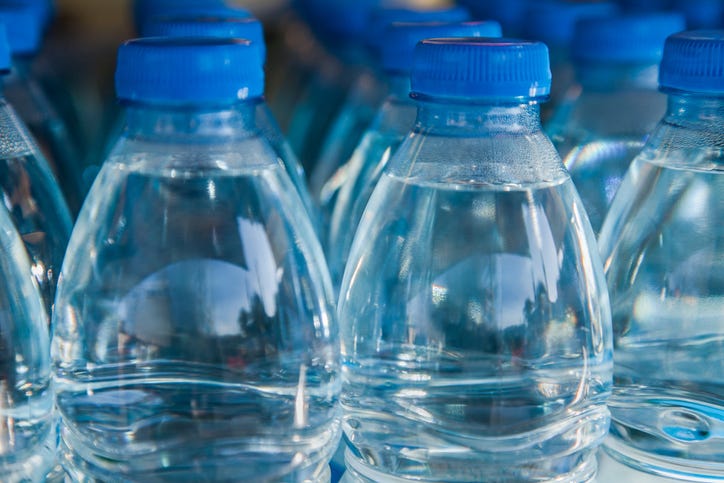
In a major move to reduce pollution across the country, the U.S. is phasing out sales of plastic water bottles and other single-use products at national parks and on other public lands.
Interior Secretary Deb Haaland issued the order Wednesday, saying the department will lead by example in aggressively reducing the amount of single-use plastic products it procures, sells or distributes while prioritizing products that can be reused, refurbished, or recycled.
The changes would take place on 480 million acres of department-managed lands, including 423 national parks, by 2032.
In addition to water bottles, other single-use products include plastic and polystyrene food and beverage containers, bottles, straws, cups, cutlery and disposable plastic bags that are designed for or intended to be used once and discarded.
The order also directs the department to identify nonhazardous, environmentally preferable alternatives to single-use plastic products, such as compostable or biodegradable materials, or 100% recycled materials.
Haaland said the Interior Department has an obligation to play a leading role in reducing the impact of plastic waste on our ecosystems and climate.
"As the steward of the nation’s public lands, including national parks and national wildlife refuges, and as the agency responsible for the conservation and management of fish, wildlife, plants and their habitats, we are uniquely positioned to do better for our Earth," she said in a statement.
The order gives the department up to a year to finalize an implementation plan that includes schedules and targets for individual locations to complete the goal by 2032.
Advocacy group Oceana praised the move, saying it "will curb millions of pounds of unnecessary disposable plastic in our national parks and other public lands, where it can end up polluting these special areas."
"Our national parks, by definition, are protected areas — ones that Americans have loved for their natural beauty and history for over a century — and yet we have failed to protect them from plastic for far too long," Oceana's plastic campaign director, Christy Leavitt, said in a statement. "We urge the secretary and Interior Department to move swiftly to carry out these changes."
Matt Seaholm, president and CEO of the Plastics Industry Association, told the Associate Press the plan is counterproductive.
"In most applications, plastic products are the least environmentally harmful option, as long as they are disposed of properly," he said, suggesting that national parks improve their recycling infrastructure as "a better approach to sustainability."
Of the more than 300 million tons of plastic produced every year for use in a wide variety of applications, at least 14 million tons of plastic end up in the ocean every year and plastic makes up 80% of all marine debris found from surface waters to deep-sea sediments, the department said.
Oceana says recycling alone will not solve the problem, as only 9% of the plastic waste ever generated has been recycled.
Many marine species ingest or are entangled by plastic debris, causing severe injuries or death, and plastic pollution threatens food safety and quality, human health, coastal tourism and contributes to climate change, the department said.


